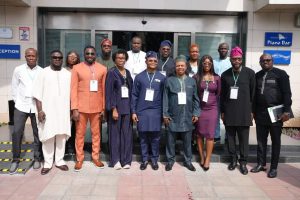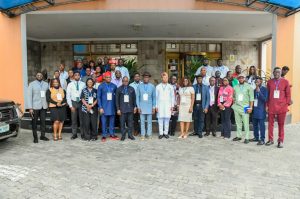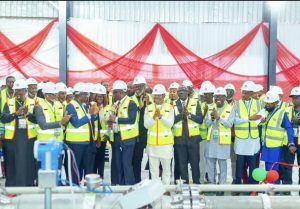The Petroleum Technology Association of Nigeria (PETAN), a group of Nigerian firms that play in the exploration, production and service segment of the petroleum industry, has said Nigerian firms’ participation in the oil and gas industry is increasing resulting in indigenous in-country capacity development
Its President, Emeka Ene, said the increase was demonstrated by the number of Nigerian firms that attended this year’s offshore technology conference (OTC) in Houston, United States to showcase their offerings to attract investments.
He said 60 members of PETAN signified interest to exhibit at the conference, but due to lack of space, all of them weren’t accommodated.
“We have 60 PETAN members and due to lack of space, we were not able to accommodate all our members who signified interest in taking part in this year’s conference. We have 50 of our members in attendance. Beyond PETAN members, we have at least another 50 exhibitors. So, in all, there are over 100 Nigerian companies that exhibited in this year’s offshore technology conference.
“What has happened is that the OTC pavilion has become a very viable platform for exhibitors to showcase what they are doing in the industry, and also to attract investors to the Nigerian oil and gas industry. It is a very good platform for striking new business deal. Apart from that, it has really portrayed Nigeria in a very positive light,” he said.
Ene stated that the conference created opportunity for people to meet and interact with serious Nigerian players, business men, entrepreneurs and technocrats who have been in business for over two decades, adding that this is why PETAN is taking this extra step to bring Nigerian companies to exhibit and make new business negotiations.
“We arranged elaborate programme through the OTC week. We had plenary session where the issues concerning the Petroleum Industry Bill (PIB) were discussed, as well as a workshop with Nigerian oil professionals abroad, where issues in the country’s oil and gas were also discussed. These are ways and means to create a platform for Nigerians to interact concerning the issues in the oil and gas sector.
On the impact of non-passage of the PIB on operations of PETAN and attraction of foreign investments, he said the PIB is like setting the rules of the game. All stakeholders recognise the need to have the rules set straight and the PIB is set to achieve that.
The PIB, he noted, tries to set a clear structure for operations in the oil and gas industry putting into considerations that there are laws that are decades old, which are no longer applicable in the oil and gas industry. Every stakeholder in the industry recognises the need for the PIB. It is inevitable that the interest of different stakeholders will conflict. There have been some issues concerning investors taking investment decisions on some projects due to the PIB. The reason is some investors want to understand the PIB. PIB look at the industry in long term and PETAN has found itself on the side of the international oil companies (IOCs) and the side of the government.
PETAN said by holding the PIB workshop, it was easy to bring the stakeholders to the table to discuss on the need to have the PIB, so as to attract long term investment in the industry, he added. He said the oil that we are producing, was not found yesterday, it was found some decades ago. So, the oil that we will be produced in the next 10 years has to be discovered today, or else, oil reserves will continue to deplete.
“If you look at the net oil reserve in the country, for the first time, it has started to decline. If the oil reserve is on the decline today, so what are we going to produce in the future? The oil reserve is also a tool to negotiate OPEC quota, if the oil reserve is declining, it is going to be extremely difficult to make case for higher OPEC quota, and it will affect oil revenue to the country. It is in our interest to have the PIB passed. What we are saying is that there is need to pass the PIB because it addresses the concerns of short term and long term investors in the oil and gas sector. It is not just about passing the PIB alone, but a PIB that would encourage investment in the oil and gas sector,” he said.
He explained the need for Nigerians to adopt the Brazilian model of local content. He said Brazil has built its local content in the last five years, but Brazil’s approach to local content issue is different from the way we operate our local content in Nigeria. We look at how much work is available and we say in the next 50 years, we will build like 100 wells, but in Brazil, they calculate all these things and put them into a mathematical formula and come out with the result.
Discover more from Nigerian Content Development & Monitoring Board
Subscribe to get the latest posts sent to your email.










